The Prague Spring & Dubček (1968)
How did Alexander Dubcek's efforts for 'socialism with a human face' lead to a Soviet invasion?
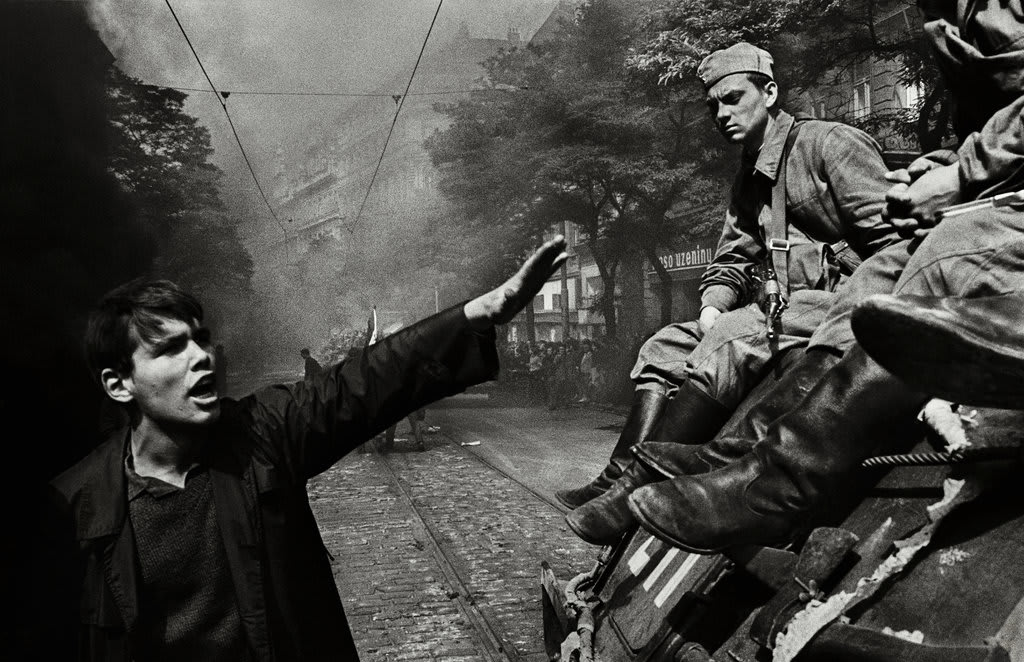
Czechoslovakia was a changed country ever since 1948: when Stalin orchestrated a coup to remove non-communists from power (who wanted to restore pro-war democracy). And replaced them with an all-soviet communist party, assigning Klement Gottwald as their new-founded leader.
Ever since then they have been under the thumb of the USSR.
And 20 years on from the beginning of the new communist country, the year ’68 was to run its course. With a series of events— changing the country forever.
The Cuban missile crisis between the two powers: the USA and USSR (Kennedy V Khrushchev) had ended. Some had different interpretations of the crisis and had mixed opinions on who actually won—some said 'John. F Kennedy' and some 'Nikita Khrushchev'. But regardless of ‘who won?’, the crisis did not lead to a nuclear war and that was the biggest success of all. Khrushchev claimed he was the glorious victor as he was able to protect Cuba from the USA, but the Soviet Union failed to see it as such – they were humiliated by their defeat in the matter. And as a result, Khrushchev’s popularity plummeted.
Before, he was removed from leadership— Khrushchev felt there was time for change now he was in power. Since the leadership of Stalin, communism had become like a vicious cult of wolves and Stalin was portrayed like a God, many feared and worshipped him as such. Khrushchev saw this and was ashamed that Stalin had altered communism and defected from the traditional communistic ways— he thought it ought to change. So, he and the Soviet Union implemented a series of soviet reforms to set communism back on the right track—it was called ‘De-Stalinisation’.
'Socialism With A Human Face'
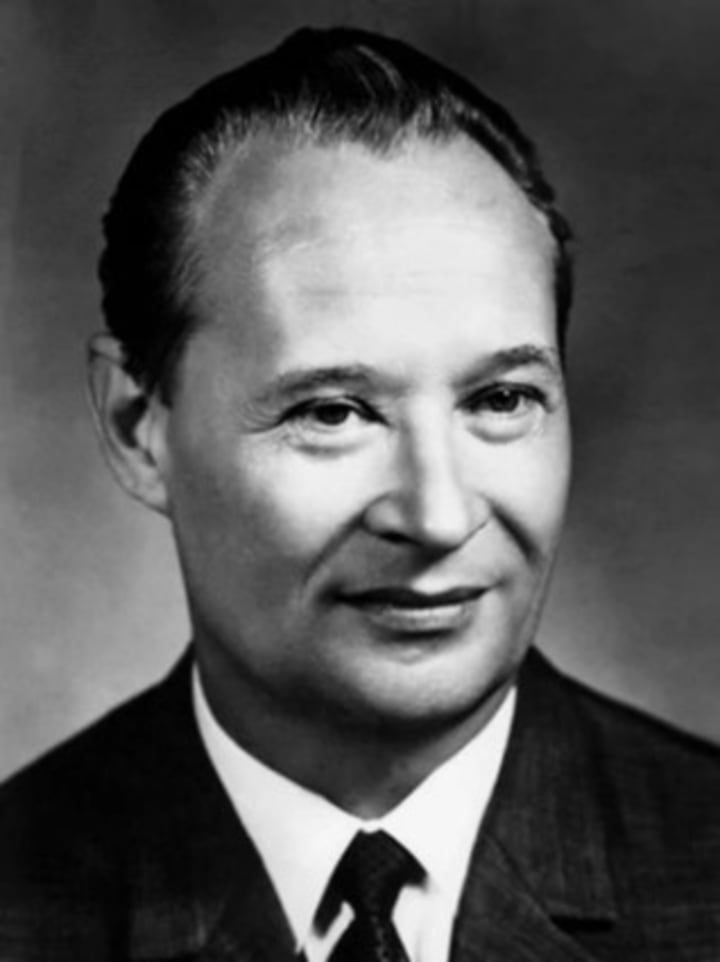
In 1968, Alexander Dubcek was assigned First secretary of the Czechoslovakian government, mainly because the government held great trust in him and recognised his loyalty, and they knew he would help uplift the popularity of the government that had been tarnished. Dubcek was loyal to the Warsaw Pact and Communism, he believed it to be the correct path in life, but he understood that it shouldn’t make one’s life miserable. He wanted a communist government to have ‘socialism with a human face’. Dubcek wanted people to enjoy life in communism and did not want it to drown people in misery, making them hopeless in life. Dubcek believed that everyone should have a voice and they shouldn’t have to hold their tongue in fear or stay silent for fear of being punished. Which had been happening for many of years, living under the communist’s watch was hell— the secret police were like bloodhounds: listening, watching, hunting the Czechoslovak people.
The Czechoslovak economy was a complete shamble! It was purely running for the benefit of the Soviet Union’s profit, leaving the Czech people with a few goods for themselves. Many Czechoslovakian people had never experienced ‘freedom of speech,’ they had never had the opportunity and those who did use it, were punished which became a deterrent to all – creating yet again another shadow of fear. Censorship hid the truth from everyone: radios, newspapers, and television censored by Stalin, and Soviet leaders after him, to keep everyone under control and limit the number of rebellious challengers. There was nary a survivor when Stalin ordered the commencing of purges between 1949 and 1954—viciously slaughtering military leaders, Jews, Catholics, high ranking communists, and even people who held wartime connections with the West.
Life wasn’t life in Czechoslovakia, even after Stalin’s death and the transition of leaders—freedom was still far away from the Czechoslovak’s reach, it seemed like a distant hope.
He knew something had to change; an end ought to happen.
So, Dubcek decided to implement his reforms for the Czechoslovak people—'The Prague Spring Reforms’, which would change the whole trajectory of the country. It was named as such, because ‘spring’ is a symbol of happiness and rebirth and that is indeed what he hoped to bring to the people of Czechoslovakia. To restore rights and rebirth freedom.
His reforms consisted of: the secret police being limited in their control (they had an ample amount of power, that needed to be eased—they were to be limited but not removed), Censorship was lifted and people were able to have ‘freedom of speech’, (now newspapers and the media could project their views and opinions without them being censored by the government—allowing critical views of the government for people to read and listen to). For the first time, people would be able to debate about their opinions, without being punished. Trading with the west was also on the agenda (forming a good relationship with the west and trading with them would allow more goods to be bought and sold), allowing traveling and lifting the restrictions (the Czechoslovak people were not allowed to travel outside of their country and now they would be given the opportunity to do so). Improving employment, housing, and living conditions (all three factors were very poor and many people were struggling, the Soviet Union ignored this). Multi-party election (Dubcek wanted the people to choose a party that they are happy with, instead of being automatically assigned one without a say). All these reforms were a Godsend for the Czechoslovak people, lifting spirits and restoring hope. But behind the scenes in Moscow, Soviet officials were not best pleased and they began to worry about this change and how ‘liberal-like’ it was. But nonetheless, Dubcek reassured them that they had nothing to worry about and he still intended to remain in the Warsaw Pact and stay devoted to communism—always.
After Nikita Khrushchev, Leonid Brezhnev gained the Soviet mantle—and became the leader of the USSR.
He watched the new reforms that Dubcek began to implement.
Brezhnev began to worry, he had the thought of… ‘if Czechoslovakia does this, then the other Warsaw Pact countries would want the same,’ and that made him fearful—he disapproved of Dubcek’s reforms and his enthusiastic attitude to such detrimental, threatening change. And with the circling conundrums of Romania and Yugoslavia, it was a great risk that he was not willing to take. Brezhnev did not want to lose control of Czechoslovakia!
A crisis meeting was held in Cierna nad Tisou, a Slovak-Ukraine border town. The attendees at the meeting would be the Czechoslovak government and Soviet leaders. Not long after the first meeting, another would commence but this time in Bratislava, yet again Brezhnev warned his friend and fellow leader, Dubcek. The meeting had the members of the Warsaw pact present—perhaps their presence prevented Dubcek from voicing his resistance.
Thereafter, Brezhnev and Dubcek would have a final conversation with one another—and Brezhnev did not hesitate to criticise and label Dubcek as ignorant. As, he condemned him for ignoring the promises from their last two meetings.
The last exchanging of words would follow as thus:
Brezhnev: "Alexander Stepanovich, I need to talk to you urgently. I rang first thing this morning, and throughout the day, but you were in Karlovy Vary the whole time. Then you tried to call me, but I was speaking with my comrades, but now I am back."
Dubcek:"Leonid Ilyich, we have been working on these things and will continue to do so. As far as I know there have in recent days been no further attacks in the press on the Soviet Communist Party, the Soviet Union and other socialist countries."
Brezhnev: "What are you talking about, when literally all the papers, Literarni listy, Mlada fronta, Reporter, Prace, are coming up every day with anti-Soviet, anti-party articles?"
Dubcek: "That was before the Bratislava meeting. It wasn't afterwards."
Brezhnev: "What do you mean, before Bratislava, when only five days ago an article appeared in Literarni listy that was an aggressive attack on the Soviet Communist Party, the Soviet Union and all our brother socialist states? That was on 8th August - after we met in Bratislava."
Dubcek: "We have held a meeting with press representatives. We condemned the unsuitable work of reporters from the papers you speak of, and we agreed to put a stop to all polemical articles."
Brezhnev: "But Sasha, the problem isn't in that fact that you met with journalists. We came to an agreement when we met. We agreed that all mass media, the press, radio, television, will be brought under the control of the central committee of the Communist Party and the government, and after Bratislava, that all anti-Soviet and anti-socialist publications will be stopped. In the Soviet Union, we are keeping our side of the deal and are not engaging in any open criticism of Czechoslovakia. But as far as the Czechoslovak organs of mass communication are concerned, they are continuing unhindered to attack the Soviet Communist Party, the Soviet Union and there have even been cases of attacks on leading figures in our party. They are calling us Stalinists and things like that. I ask you, what is that supposed to mean?"
Dubcek stressed that the issue could be solved, but it wouldn’t be swift in action, it would take time.
Brezhnev:"How much later?"
Dubcek:"In October, the end of October."
Brezhnev: "What can I say, Sasha? This is nothing but more deception. This is more proof that you are deceiving us. I can't put it any other way. I will speak quite bluntly: if you prove unable to solve this question, then it seems to me that your party leadership is no longer in control."
Dubcek: "But this isn't deception. We are trying to fulfil the obligations to which we committed ourselves. But in a way that is possible in the current complex situation."
Brezhnev: "But understand that this situation - your stubborn attitude towards the commitments we made at Cierna nad Tisou - changes things completely. We must take issue with this and have no choice but to reassess the situation and take new, independent measures."
Dubcek: "Comrade Brezhnev, take whatever measures your politburo considers fit."
Brezhnev: "If you answer me like that then I have no choice but to tell you, Sasha, that that was an ill-considered statement."
Dubcek: "I can´t give you any other answer. We are trying our hardest to put into place the agreements we reached, but we can't do it just in ten days or a week. We have done all we can. What can you possibly do in such a short time? This is a complex process, which concerns the whole party, the whole country, the whole nation. The party has to get control of these processes, to lead the whole country in the process of building a socialist society. That's where we see our debt, that's where we see our obligation, but that's not possible in the short time you are giving me, comrade Brezhnev. With all responsibility I am telling you that if you do not believe us, if you consider us to be crooks then take whatever measures your politburo considers necessary."
Dubcek never could have imagined the measures that the politburo would take. He never thought that the Soviet Union would invade his country and attack his people.
As the conversation progressed, a tone changed in Dubcek’s words and he becomes frustrated and upset with their exchanging of words.
Brezhnev: "Alexander Stepanovich, I'm sorry that you are getting so upset. In important matters emotions cannot save the day. What is needed here is healthy common sense, good judgment, strong will, and emotion has no place here."
Dubcek: "I'd rather give all this up and go back to my old job. Why am I so upset? Because we are talking, working, doing all we can to fulfil the agreement reached in Cierna nad Tisou, and you do nothing but accuse us. This is our second conversation where you have accused me of deceiving you, of not trying to solve the questions on which we agreed."
Brezhnev: "Sasha, I'd like to believe you, but understand. What disturbs me most of all is that you still haven't sacked those rightists that we agreed to remove. I can't help asking myself: if you really do agree on the need to sack the likes of Cisar, Kriegl and Pelikan, and I for one am quite convinced that they have to go, if you really want to remove them, then I have no doubt at all that you could do so quickly and easily."
Dubcek: "But why does everything have to be so rushed...?"
(Transcript of Leonid Brezhnev's teleophone conversation with Alexander Dubcek - credited to: https://english.radio.cz/)
Perhaps the need for a rushed action—would be evidently clear to Dubcek and the people of Czechoslovakia, sooner than imagined.
Although, Dubcek was warned by Brezhnev, who told him not to proceed with his reforms, as he tried to show him how he was endangering communism and how there would be consequences. Dubcek remained stubborn to his reforms and refused to budge. So, Brezhnev decided to intimidate him by having Warsaw Pact troops perform manoeuvres around Czechoslovakia—hoping to frighten and threaten him into retracting him reforms. Dubcek was not at all intimidated. Brezhnev lost his nerve, and it was the final straw for Dubcek when he took the liberty of inviting the leader of Romania, Ceaușescu and Yugoslavia, Tito for a meeting in Prague.
It was indeed common knowledge that there had been years of tension between Yugoslavia and the Soviet Union. During the years after World War Two, Josip Broz Tito and Joseph Stalin had major disputes between one another. Such animosity between the two, led to the Tito-Stalin split in recognition of the two leaders, or as more well-known the Yugoslav-Soviet split. Stalin orchestrated numerous assassinations attempts on Tito, to which every attempt failed. In response, to the constant attempts on his life—Tito responded to Stalin’s twenty-two death messages:
‘Stop sending people to kill me. We've already captured five of them, one of them with a bomb and another with a rifle... If you don't stop sending killers, I'll send one to Moscow, and I won't have to send a second' – A letter from Josip Broz Tito to Joseph Stalin
After such rejection of the agreements, Dubcek had to face his punishment!
The Midnight Invasion of Czechoslovakia
On Midnight 20th August 1968, approximately 600,000 Warsaw Pact troops and 5,000 tanks invaded Czechoslovakia and banished the ‘Prague Spring’. Czechoslovakia was unable to defend with their army, as Brezhnev ordered them to stay in their barracks, so they could not fight back. There was an effort of opposition from the public by attacking the troops, destroying road signs and blocking roads, but they were no match against an armed army with tanks, there was only so little they could do. This invasion had been the largest European deployment since World War II. And it was all to contain and preserve communism—at the cost of silencing and stripping the rights of an entire population.
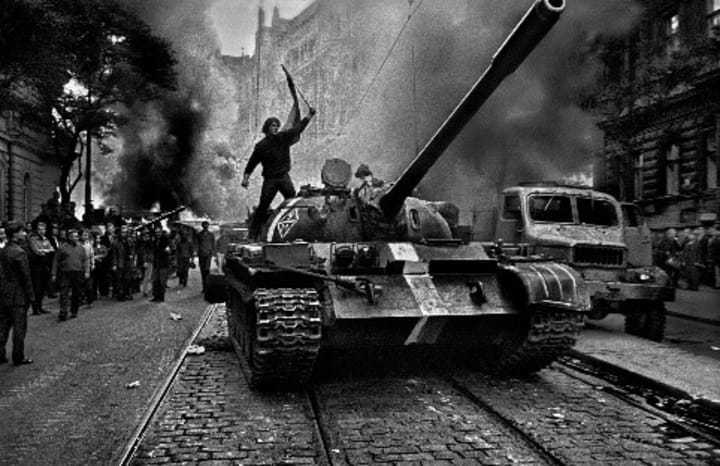
The Warsaw Pact troops soon arrested Dubcek and his fellow government leaders, they were sent to Moscow to face their Soviet fate. The Czech public demonstrated and contested their arrest—to be shot down and slaughtered by Warsaw Pact troops, leaving 100 dead bodies on Czechoslovakian ground. The eyes of many leaders around the world witnessed such happenings: China, Yugoslavia and Romania condemned the invasion—but their response did little to turn the Soviets’ heads.
A few days after, Dubcek and his allies were taken back to Prague. Upon his return he broke the devastating news to the Czechoslovaks, with tears in his eyes he said: "we might be forced to take some temporary measures that limit democracy and freedom of opinion." But he urged his country to believe in him once more, and not to be disappointed in him. He too begged for an end to resistance towards to Warsaw Pact troops saying that “a military defence would have meant exposing the Czech and Slovak peoples to a senseless bloodbath.” This moment was not what he had intended for himself or country—it was the most devastating moment in his life. His brief period of good had ended abruptly.
1970 would be the year Dubcek would be expelled from the Communist Party, before then he had remained in power. He would then be appointed as the Czechoslovak ambassador to Turkey, to later be banished from that post and be assigned with the job of forestry in Bratislava in June 1970, until 1987.
After, years of his absence he came back to the Czechoslovak people and remerged—his name and his importance had not been lost throughout the years. He spoke at a rally in Bratislava, as he supported Vaclav Havel, a man who too experienced the harsh iron fist of the Soviets. Vaclav Havel was elected President.
Many say Dubcek was indeed a man before his time, he had fast-paced, generation-skipping ideals. And his resilience and efforts to restore liberalisation to Czechoslovakia under the Soviet’s noses—is the effort of a hero.
Fortunately, he did not serve the same fate as Hungary’s Imre Nagy (1959), who was viciously kidnapped, put on trial, executed and buried in an unmarked grave. Many say Dubcek did not see the same consequence because Brezhnev genuinely liked him, just not his actions – so decided not to sentence him to death. The only thing that died was Dubcek’s reforms, and that was a piece of him, that died that day too.
The 1968 Brezhnev Doctrine
In response, to the recent events, Brezhnev decided to make a doctrine, to the west Brezhnev’s actions were cruel and heartless, he was portrayed as an aggressive leader, no different from those before him. Brezhnev saw his actions as a probable cause for restoring the protection of communism, so September 1968—the Brezhnev Doctrine was announced. His Doctrine was more formally known as the, “Sovereignty and the International Obligations of Socialist Countries,” which was published on the aforementioned date in Pravda, a newspaper dictated and controlled by the Communist Party and the Soviet Union.
The Doctrine recognised that the individual communist countries were free to decide the trajectory their country could take, but “none of their decisions should damage either socialism in their country or the fundamental interests of other socialist countries.” It stated that the actions of any individual communist country will also affect the surrounding communist countries and if they threaten other countries then they will be stopped. A warning to all ardent reformers.
The Tragic Death of Dubcek
In 1969, after Dubcek’s attempt to restore freedom in Czechoslovakia, a new leader was assigned, replacing him – Gustav Husak – a cruel, obedient, and loyal leader to the Soviet Union. There was no doubt that he would not follow the same path as Dubcek. He was indeed the antithesis of Alexander Dubcek.
After coming back to the political spotlight, after years of being absent—he would continue with his life. Until 1st September 1992, when Dubcek was injured in a car crash on the Czech D2 highway, the injuries he sustained later lead to his death on 7th November 1992. While being driven by his chauffer during a rainstorm, the chauffer decided to exit the highway and fell into a ravine. Dubcek suffered from spine and chest injuries and needed surgery.
Dubcek’s chauffer who was left unscathed by the event, was arrested and charged with “serious bodily harm.”
That day Czechoslovakia lost the ‘father of reform’.
The year 1989 would be the year that Czechoslovakia was freed from the manacles of the Soviet Union. As, the Velvet Revolution was brought into action, restoring democracy to Czechoslovakia with a non-communist government.
Four years later, the country would be split into the Czech Republic and Slovakia—Czechoslovakia was to be no more.
It is indeed comforting that Dubcek saw the restoration of democracy before his tragic accident and death.
But we cannot forget the efforts of a brave man, to give his people…’socialism with a human face.’
Author: P.I Williams
Copyright © 2022 P.I Williams
This is original work created by the name stated and must not be used with the intention of gaining profit from any distribution of the elements the work contains. But used for the sole purpose of non-commercial research, private study, or personal use. Limited extracts may be used for non-commercial activities only, with reference to the sources obtained from this work. The copyright prohibits any persons from displaying this work as their own personal property.
Some elements of this article have been extracted from an outside source, for validating information. The outside sources have been referenced such as books, articles, people, and images.
About the Creator
P.I Williams
A History fanatic and writer, touching upon certain events, people and ages in History.
Follow my page for History updates!

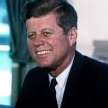
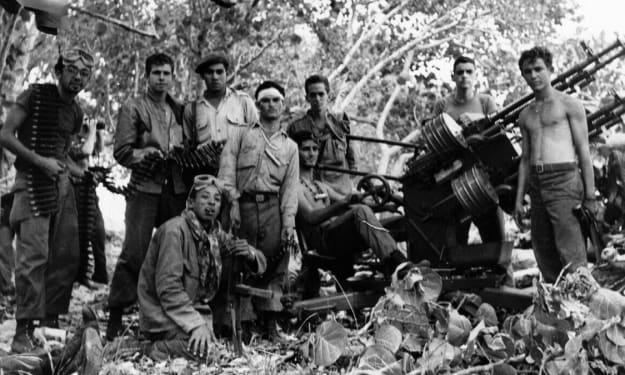



Comments
There are no comments for this story
Be the first to respond and start the conversation.